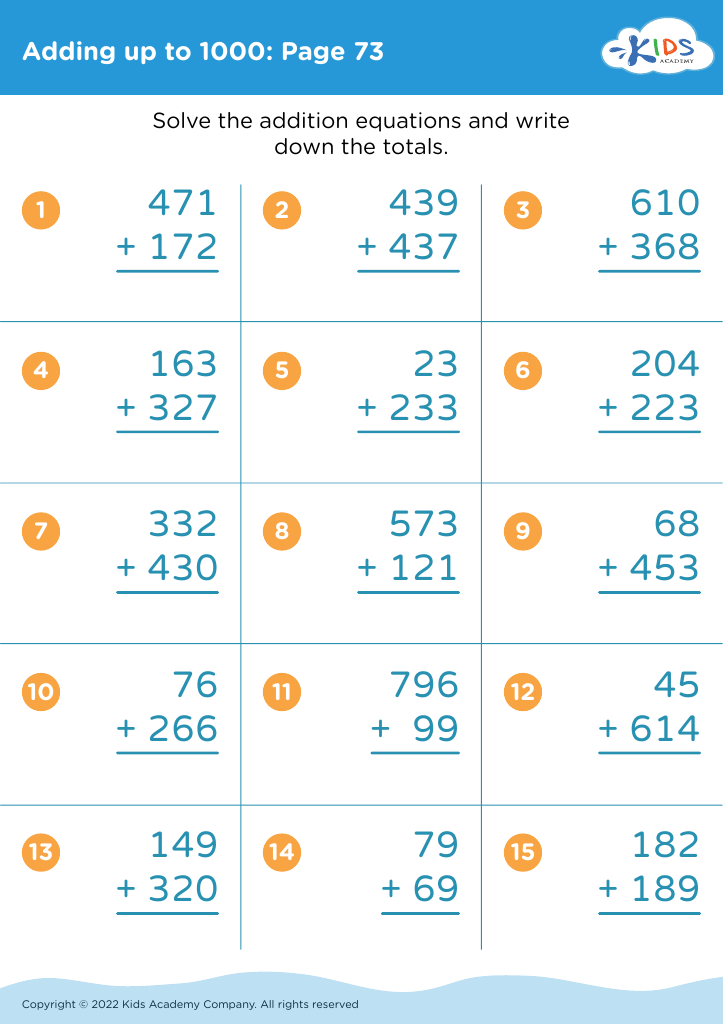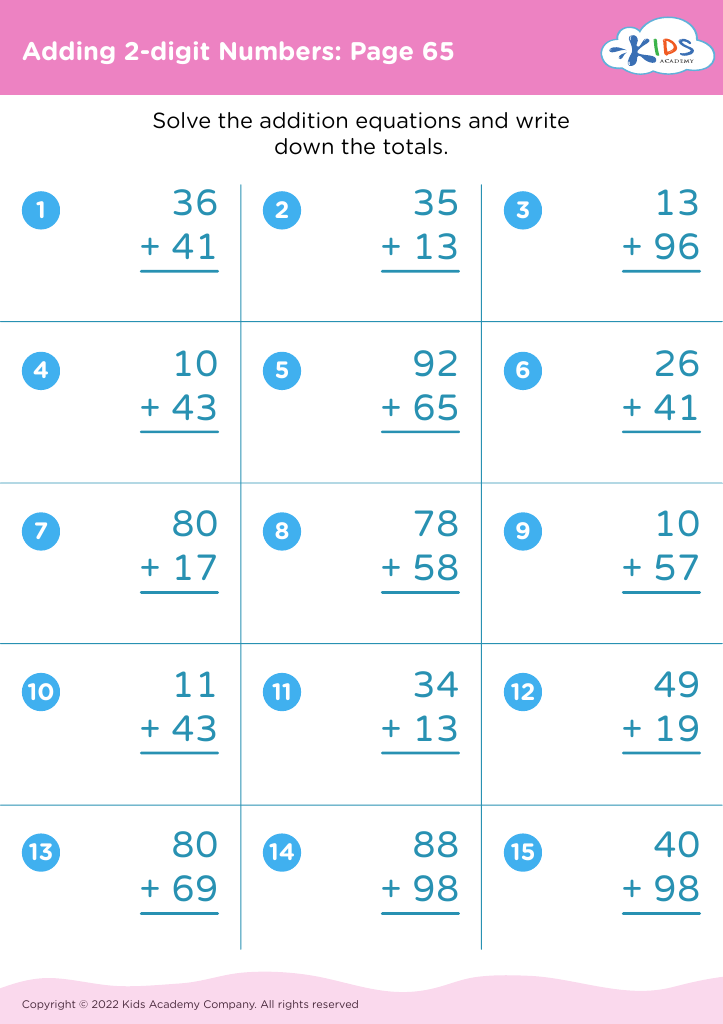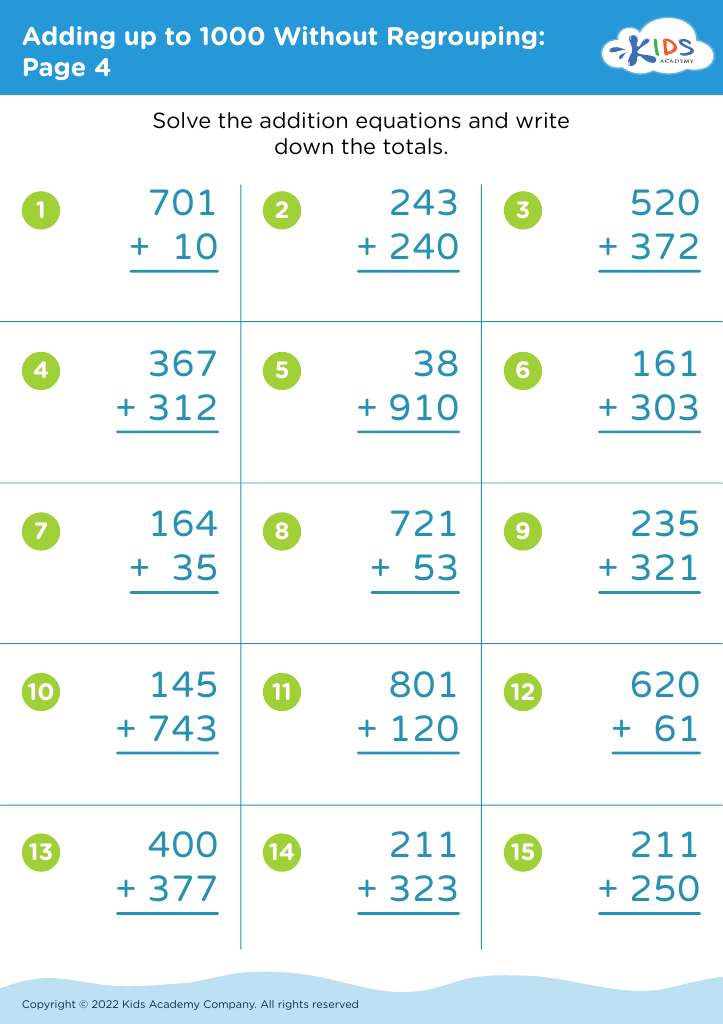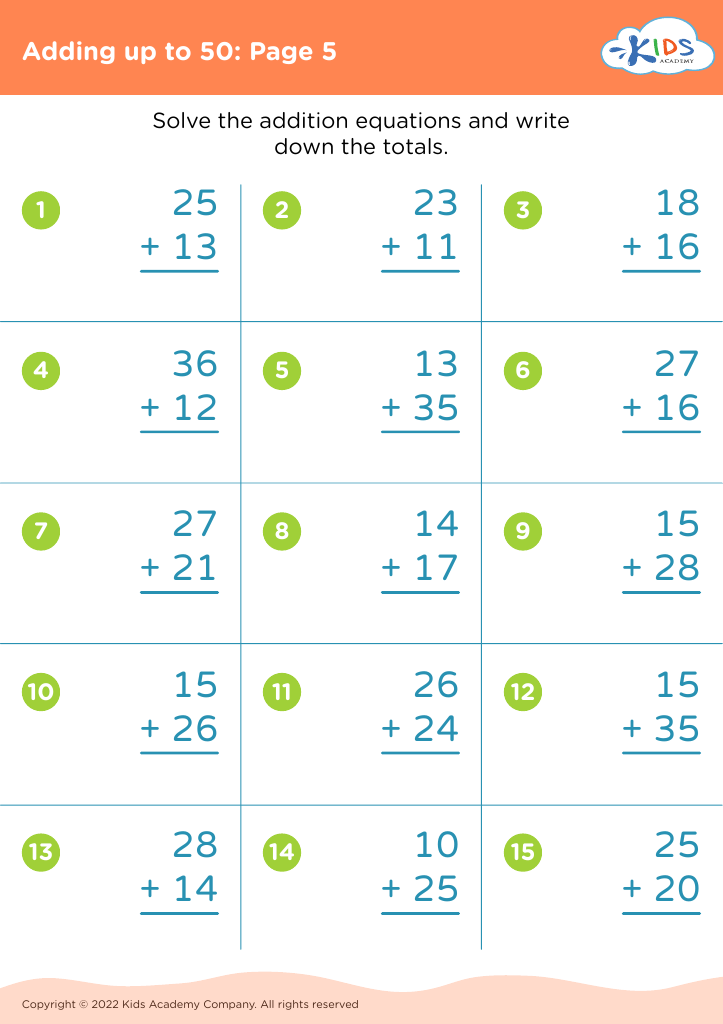Vocabulary expansion Addition & Subtraction Worksheets for 8-Year-Olds
13 filtered results
-
From - To
Enhance your 8-year-old's math skills with our engaging Vocabulary Expansion Addition & Subtraction Worksheets! Designed to blend fundamental math concepts with vocabulary-building exercises, these worksheets help young learners develop both their arithmetic abilities and language skills. With a variety of fun and interactive activities, children will practice addition and subtraction while expanding their mathematical vocabulary. Ideal for classroom settings or home practice, these resources make learning enjoyable and effective. Help your child become proficient in math vocabulary and boost their confidence in handling addition and subtraction problems. Explore our collection today and support your child's academic growth!
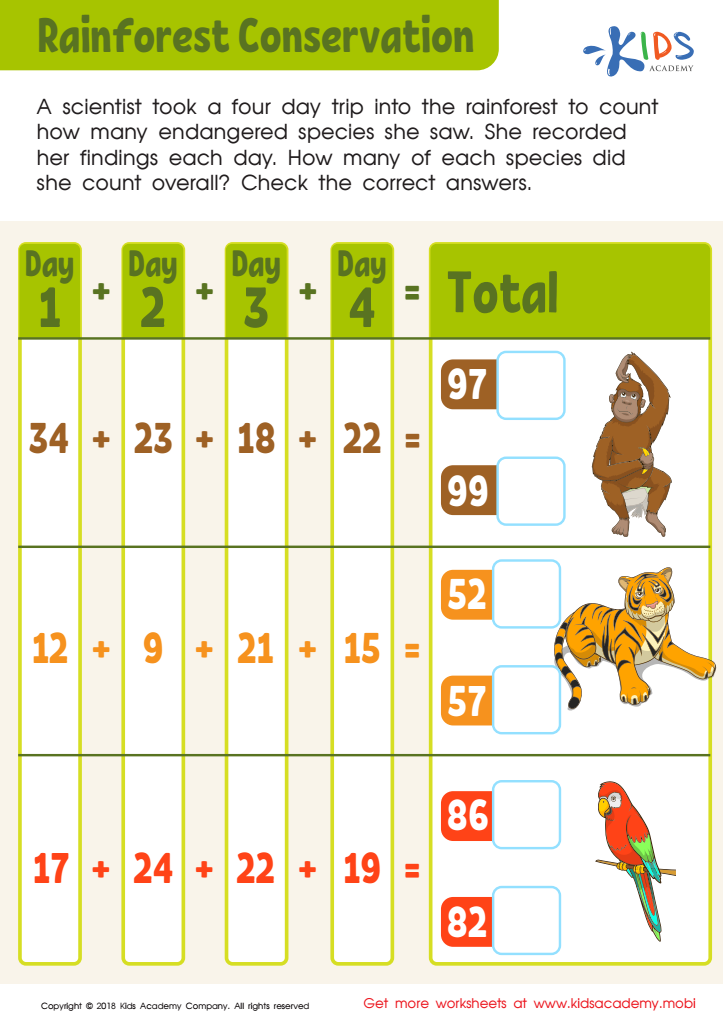

Rainforest Conservation Worksheet
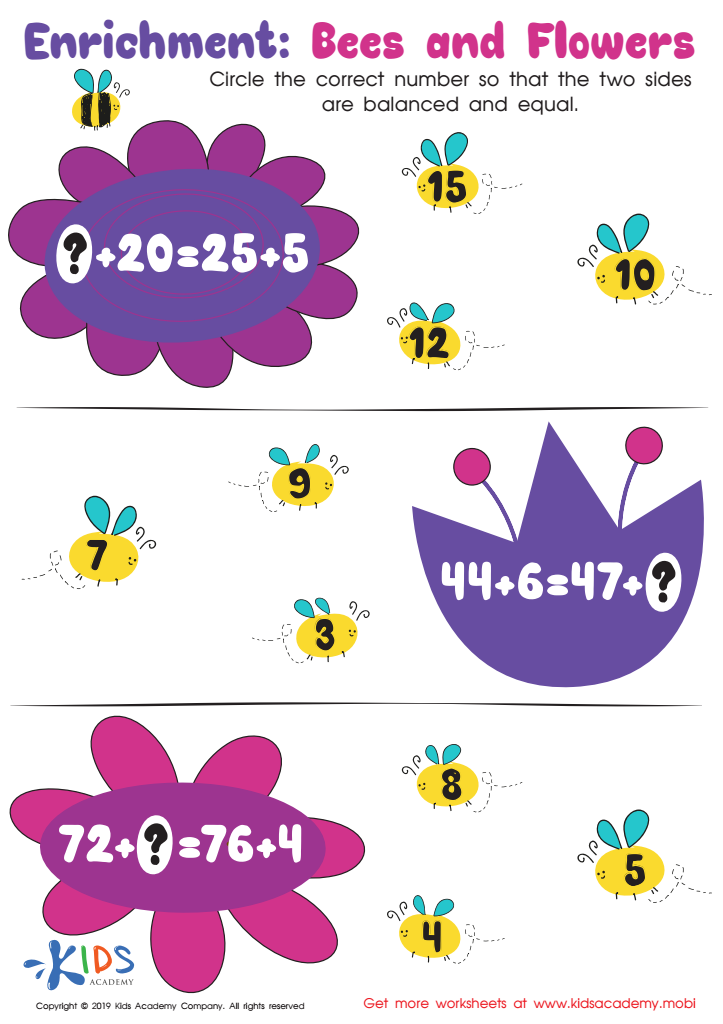

Enrichment: Bees and Flowers Worksheet
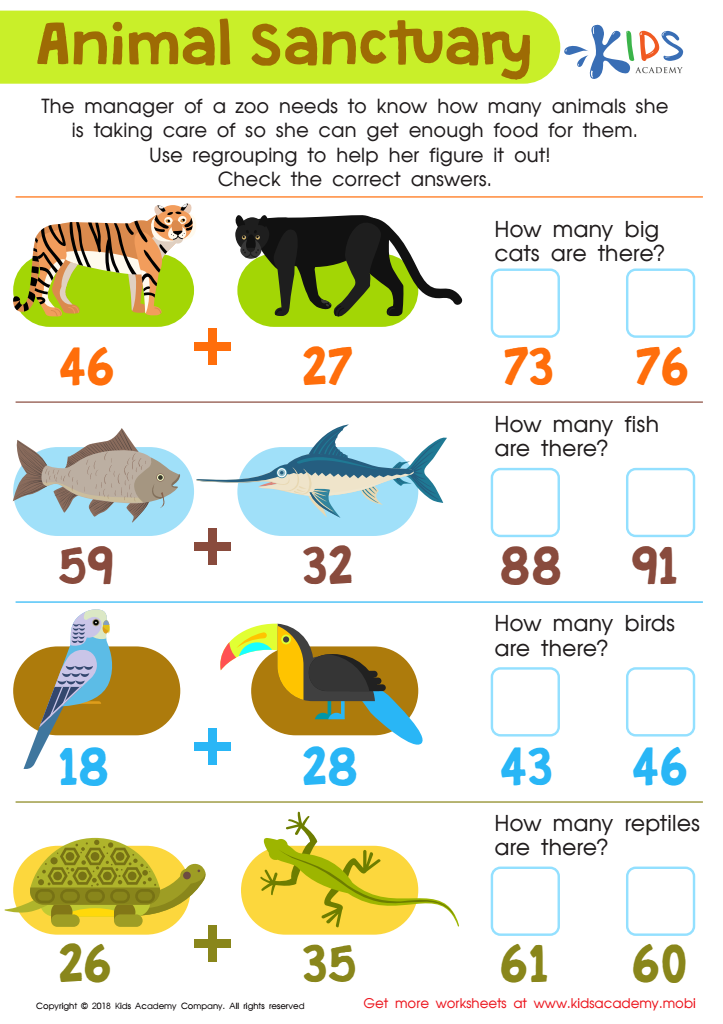

Animal Sanctuary Worksheet
Parents and teachers should prioritize vocabulary expansion in addition and subtraction for 8-year-olds because it plays a vital role in enhancing both mathematical understanding and communication skills. At this age, children are cementing their foundational math concepts, and the vocabulary they encounter helps them articulate their thought processes better. Understanding terms like "sum," "difference," "plus," and "minus" is essential for grasping arithmetic operations.
Moreover, a robust vocabulary allows children to engage in meaningful discussions about math. They can explain their reasoning, share strategies with peers, and ask questions more effectively, fostering a collaborative learning environment. This not only boosts their confidence but also nurtures critical thinking skills.
Additionally, integrating vocabulary with math helps bridge the gap between language arts and mathematics, making learning more holistic and interconnected. It encourages students to view math as a language in itself, where precise terminology is crucial for problem-solving.
As they become fluent in math vocabulary, children are better prepared for more complex concepts and real-world applications. Fostering a rich vocabulary in arithmetic at this stage establishes a strong foundation for future academic success and lifelong learning. Thus, supporting vocabulary development is essential for their overall growth and achievement.
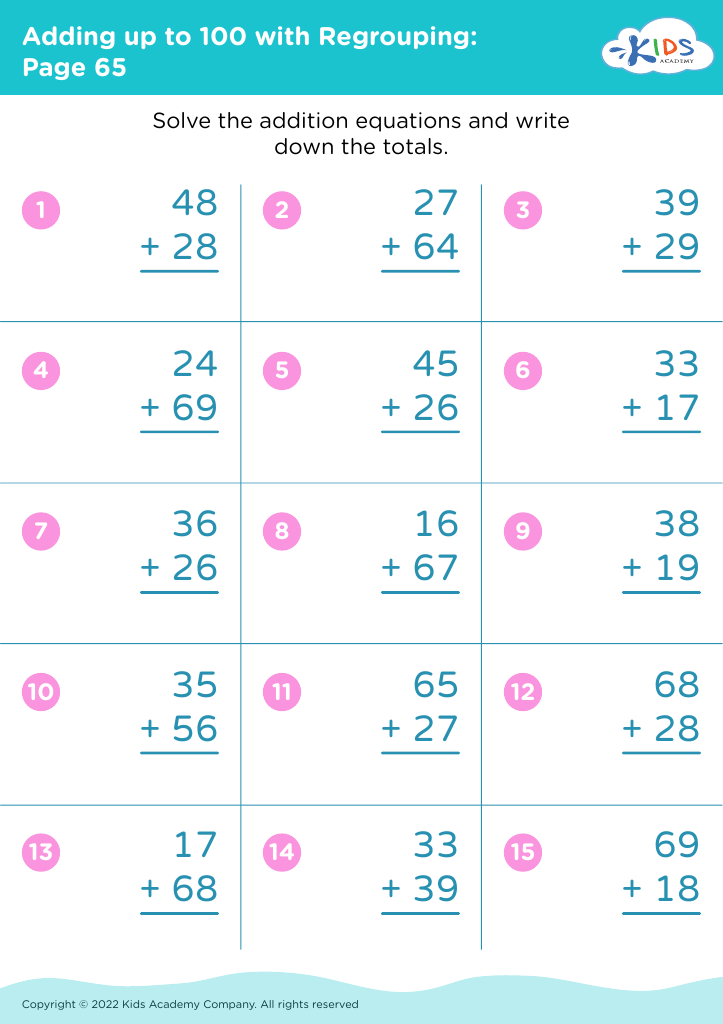


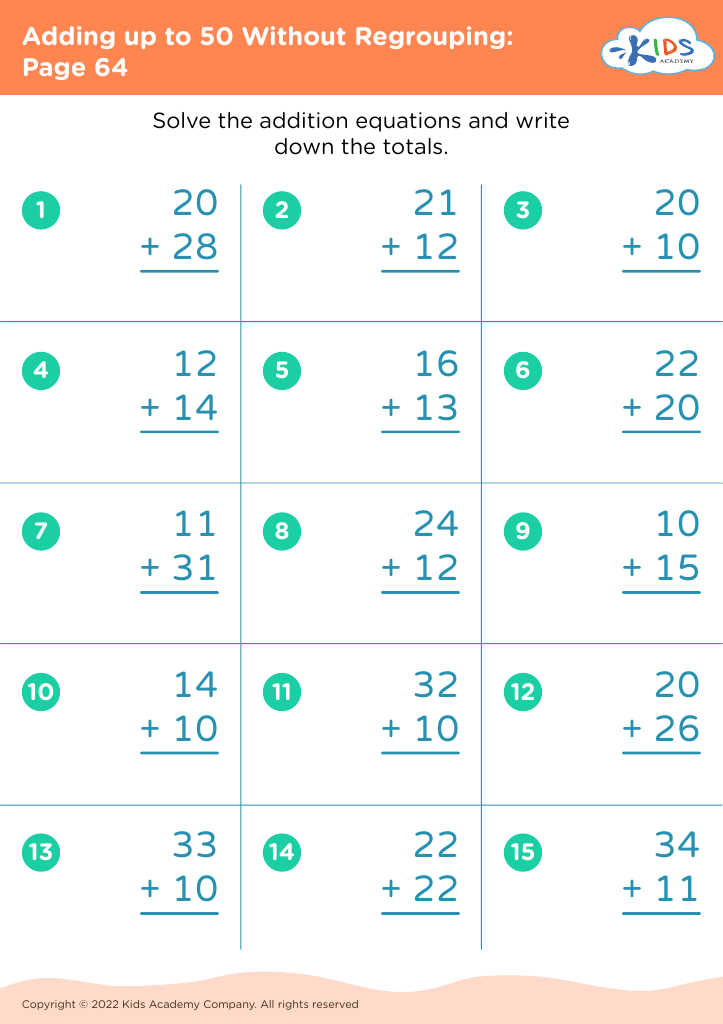
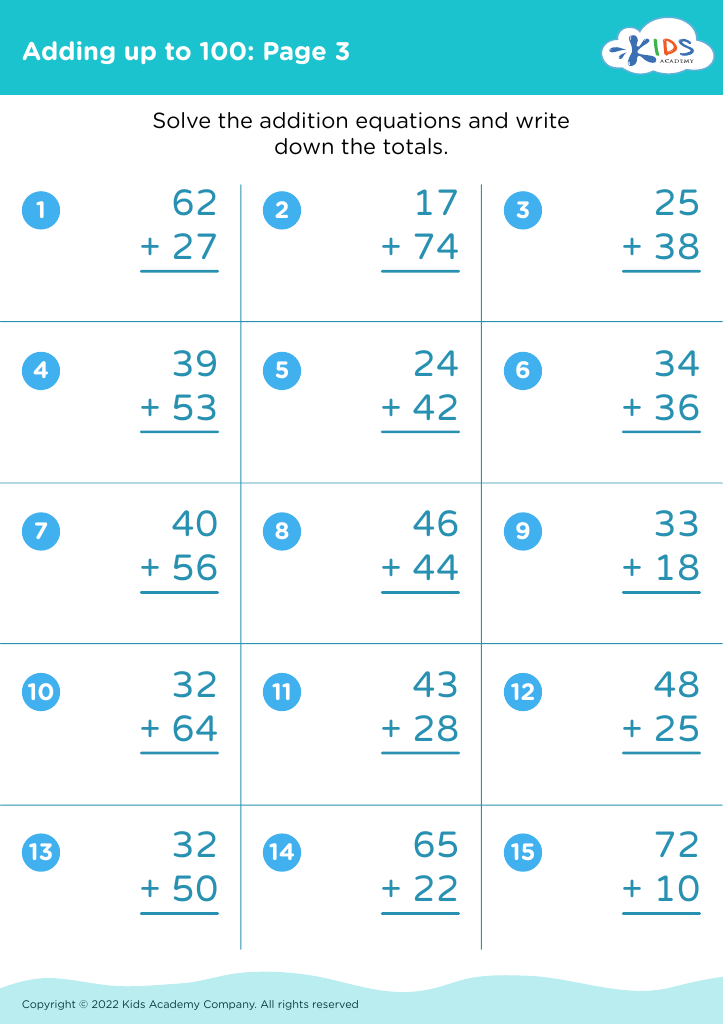
 Assign to My Students
Assign to My Students

